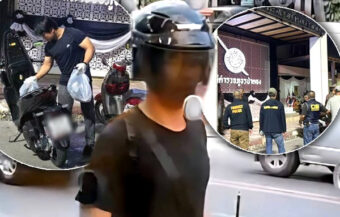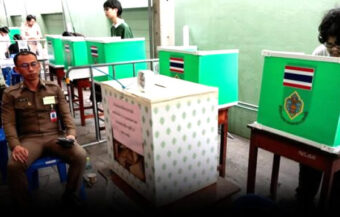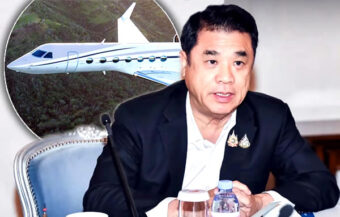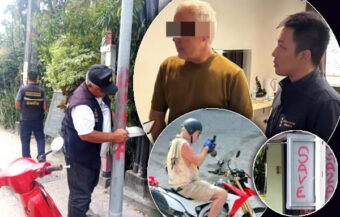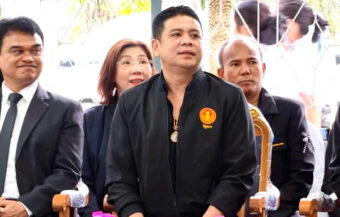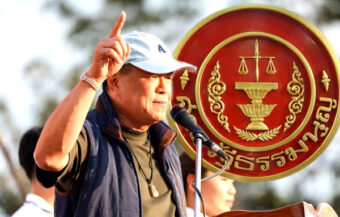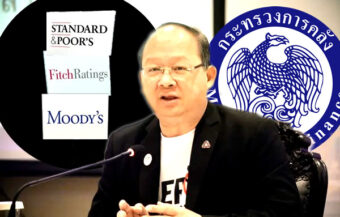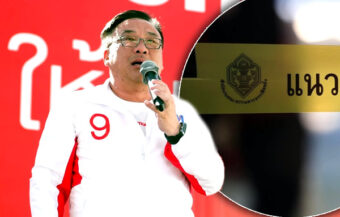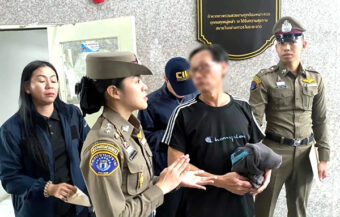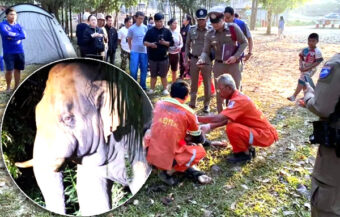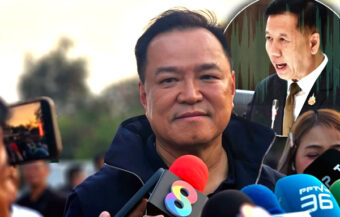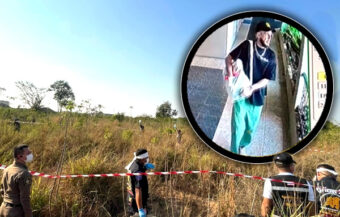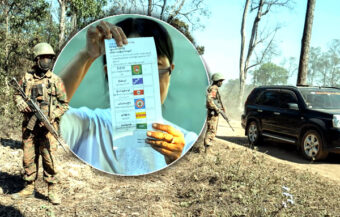Kla Tham Party and Deputy Prime Minister Thamanat Prompow are at the centre of Thailand’s intensifying political storm, with rising corruption fears, scam networks, gambling allegations, coalition tensions and public distrust ahead of the next general election.
Pressure in Thailand’s political arena is intensifying as public fears of government corruption spike. The surge follows the Thai-Cambodian crisis this summer and the collapse of Prime Minister Paetongtarn Shinawatra. Attention now falls squarely on the junior coalition partner, the Kla Tham Party, and its de facto leader, Deputy Prime Minister Thamanat Prompow. Analysts say the next general election—and Thailand’s political direction—will hinge on fierce debates over corruption and misconduct in the future. Critics warn that these controversies are undermining proper democratic governance and eroding public trust in the state.
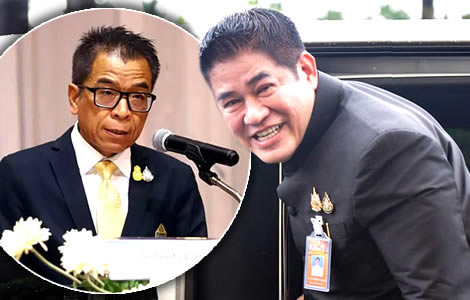
The interim government of Prime Minister Anutin Charnvirakul is facing escalating political strain. Indeed, it promises to be an extremely short-lived one. Public concern about scam networks, grey capital, and possible criminal infiltration into power is rising. Pressure is mounting daily.
Opposition forces are sharpening their attacks. Investigations, activist complaints, and political disputes are reinforcing doubts about the coalition’s integrity.
The People’s Party has already declared corruption and grey capital as its core election message. It aims to position itself as the main challenger. Pheu Thai, meanwhile, remains in coordination talks with the more progressive and larger opposition party.
Both parties known by their colours Orange and Red must finalise a stance before December session starts
Both parties, known by their colours orange and red, must finalise a joint stance before the December parliamentary session. That session could see a no-confidence motion. Such a move may threaten the government’s stability. Coalition loyalty will be tested.
The present government is led by the Bhumjaithai Party, known as Thailand’s blue party. Indeed, it is an extraordinary political tale. A party that achieved only 3% of the party list vote in 2023 is now running the kingdom’s government. Some would certainly say this reflects the distorted nature of the 2017 Constitution.
Meanwhile, at the centre of the storm raging presently sits Deputy Prime Minister Thamanat Prompow. He is the de facto leader of the Kla Tham Party. He is also a powerful coalition partner. Opposition MPs from the People’s Party have targeted him repeatedly. Notably, not so much the Pheu Thai Party, where he is known to have ties.
These firebrand People’s Party MPs point to his association with financier Benjamin Mauerberger, known as Ben Smith. The party’s top MPs refer to multiple unresolved questions about business and political networks. They particualrly highlight conflicts involving Kla Tham Party figures. In turn, they say that party represents the most exposed flank of the government.
Chonnaput Naksua faces renewed scrutiny over ฿2.5 billion gambling allegations linked to websites
For instance, Songkhla Kla Tham Party MP Chonnaput Naksua is one of those under renewed scrutiny. He faces revived allegations of links to a ฿2.5 billion online gambling network. The claim resurfaced after comments from former police deputy chief Surachate “Big Joke” Hakparn.
Veteran and respected political activist Atchariya Rueangrattanapong then submitted documents to the Department of Special Investigation. He said the documents showed financial ties between gambling operators and Chonnaput. Atchariya also claimed family members of the MP were involved.
He stated that Chonnaput allegedly tried to negotiate privately to resolve the matter. Chonnaput denies all wrongdoing. He says his finances were cleared before he entered parliament. The Kla Tham Party leadership backs him and says the matter was already investigated. Yet, the controversy continues to spread.
Atchariya also accused Cyber Crime Investigation Bureau officers of benefiting from gambling operations. He alleges those officers routinely held press conferences on crackdowns. However, he then alleges they failed to forward cases to court. After that, the activist says he will file a petition with the Anti-Money Laundering Office. He aims to see assets linked to online gambling and other illegal activities seized. Pressure, therefore, extends beyond parliament. It now touches police agencies tasked with tackling online crime.
Government faces criticism over scam networks trafficking citizens and international law enforcement
These disputes come as the government faces criticism over scam networks, particularly those operating from Cambodia. Many Thai citizens have been trafficked to scam compounds abroad. Criminal syndicates operate in neighbouring countries.
Critics argue that government action has lagged. Officials, meanwhile, insist law enforcement operations are ongoing. They highlight regional and international cooperation. They cite active investigations. However, public frustration remains high. Trust is certainly low.
Meanwhile, another political confrontation has flared. People’s Party MP Rakchanok Srinok has challenged a Kla Tham MP from Kamphaeng Phet. She questions the handling of athletics funds under the Ministry of Tourism and Sports.
She has urged citizens to report suspected corruption. Citizens have responded online. Some reports appear serious. Others look speculative. Kla Tham leaders, in the meantime, warn that accusations without proof will trigger legal action. Yet, some party figures dismiss the complaints entirely. Tension between the two camps is growing.
Lottery allocation and Kla Tham Party membership claims spark further political scrutiny and conflict
Additionally, allegations of wrongdoing in the allocation of lottery tickets are spreading. The tickets reportedly involve quotas held by military personnel and people with disabilities. Activists say the distribution has been abused for profit.
Authorities deny illegal conduct. A Ministry of Defence investigation has begun into the matter. But questions remain. The issue adds another front to the widening scrutiny of state-linked networks.
Furthermore, a political dispute erupted this week over political party membership claims. Deputy Prime Minister Thamanat declared the Kla Tham Party had secured 2,000 new members through the People’s Movement for a Just Society, or P-Move.
Notably, the veteran politician said the party was expanding rapidly. Captain Thamanat stated the growth reflected public trust and grassroots support. He also suggested strong recruitment in southern Thailand. The deputy PM claimed P-Move had delivered names for party enrolment.
However, P-Move immediately corrected the record. The movement issued a formal statement. It called the remarks a misunderstanding.
The movement’s statement made clear that it had not submitted 2,000 names to the Kla Tham Party. In brief, it described instead a petition campaign. The group had submitted 10,000 signatures to government leaders.
Petition signatures support land reform and clarify P-Move did not submit names to Kla Tham Party
Those signatures supported land reform demands. They are related to community land titles, forest legislation, and protection of the Land Bank Management Institute. The petition was delivered on November 3 at the Office of the Civil Service Commission.
It followed the prime minister’s decision on October 21 to establish a committee to address P-Move issues. Deputy Prime Minister Sophon Saram chairs that committee. Thamanat serves as vice chair.
P-Move says the signatures were for policy advocacy, not party recruitment. It says no names were sent for membership. It released its statement to avoid confusion. The Kla Tham Party has not withdrawn its earlier claim.
As this dispute unfolded, the Election Commission stepped in. Secretary-General Sawaeng Boonmee issued a warning. He said falsifying party membership is a criminal offence. He noted rising complaints from citizens.
They reported discovering their names in party lists without consent. The Election Commission says registration must be voluntary. It says membership must be verified legally.
Sawaeng states party registrars risk up to three years in prison if they knowingly approve false entries. Party leaders may face fines.
Election Commission now urges citizens to verify party memberships online amid rising complaints
The Commission official urged citizens to check their membership status. Verification can be done using national ID numbers online. Social media reports of false listings have gone viral. The Commission is reviewing party registration systems.
It says it will investigate cases fully. It is already under criticism for slow responses to controversies, including the 2024 Senate election probe.
The political environment is hardening. Each new allegation intensifies the spotlight on the coalition. Public confidence is being tested. Parliamentary manoeuvring between the Pheu Thai Party and the People’s Party is beginning to make progress behind the scenes ahead of December.
The no-confidence motion, if filed, could reshape the political landscape. Cabinet cohesion is uncertain. The coalition must hold its ground as accusations continue to surface.
Opposition leaders insist the government is unable to manage corruption risks. Coalition leaders defend their record. They say agencies are acting lawfully. They point to ongoing investigations. Yet, the tone of debate has sharpened.
People’s Party mobilises anti-corruption drive while politics is dominated by emerging allegations
The People’s Party is positioning itself as the primary anti-corruption voice. It is actively mobilising public involvement while demanding accountability across ministries, security forces and law enforcement.
Pheu Thai is operating in tandem, preparing for a parliamentary challenge. The combined strategy may become decisive in the next months and then onwards to the 2026 General Election.
Moreover, political messaging is now becoming dominated by these disturbing revelations day after day, in addition to petitions and legal complaints. Activists are supplying documents to state agencies. MPs are citing real financial transactions, data and evidence. The government and its allies are responding with promises of action, while the Kla Tham Party is issuing denials and legal warnings.
The Election Commission warning is clearly cautioning parties about criminal liability. Public databases, for instance, those linked to party membership registrations, are under scrutiny. Each development adds pressure.
December parliamentary session to decide government’s future amid scandals, accusations and uncertainty
The December parliamentary session will determine much of the government’s future. Coalition discipline will be tested under public glare. Opponents will press for answers. The prime minister will attempt to maintain control.
Of course, Prime Minister Anutin Charnvirakul may ‘run,’ as he says himself. That is, he may use his constitutional prerogative to dissolve the House of Representatives. Certainly, this would collapse constitutional reform efforts.
The question the People’s Party is asking itself right now is whether these efforts are truly genuine in any event. The present government’s bona fides are not looking particularly strong.
The ruling bloc, meanwhile, continues to project stability even against near-daily news stories linked to corruption. Yet accusations continue to multiply.
The scam centre crisis persists and has very real and frightening implications for both society and the country’s economy. Lottery distribution questions remain unresolved. Sports funding allegations are active. Gambling case files remain open. Party membership records are under inspection. Land rights petitions are circulating.
All sides prepare for confrontation as the government faces a corruption narrative and public scrutiny
Every side is preparing for confrontation. The opposition is building a corruption narrative. Activists are pushing cases into official channels. Regulators are issuing legal threats over false membership. Coalition leaders are rejecting accusations and warning critics. Meanwhile, citizens are checking party registries and posting evidence online.
PM Anutin tells Anti Anti-Money Laundering Office to act decisively on scammer funds to prevent sanctions
People’s Party and Pheu Thai to hold talks amid a growing public unease over Cambodian grey capital
Former minister and party leader Sudarat warns of ฿20 billion plot by ‘Scambodia’ to take political power
The government is running out of room for missteps. The next six weeks will certainly matter critically. The survival of PM Anutin Charnvirakul’s short-lived government and the balance of power before the next election are at stake.
The public is watching. Parliament will soon reconvene. The political conflict, both above the surface and beneath, hidden from public view, is not easing. It threatens to explode.
Join the Thai News forum, follow Thai Examiner on Facebook here
Receive all our stories as they come out on Telegram here
Follow Thai Examiner here
Further reading:
High powered, secretive meeting chaired by PM agrees robust action against Cambodian networks
Thailand and Cambodia face danger from ‘Dragon Head’ the Chinese mafia leader behind the scams
Cyber police and Money Laundering agency seek UK and US co-operation targeting Cambodian networks
United States, South Korea and United Kingdom act against Cambodian scam industry with Thai tie-ins
Ben Smith affair & allegations of links to Cambodian scam centres continues to rage in parliament
Defiant Rangsiman Rome warns he’s not just fighting a defamation case but for the future of Thailand
Ben Smith money fixer to the elite in Thailand lines up ฿100M defamation case against Rangsiman Rome

